














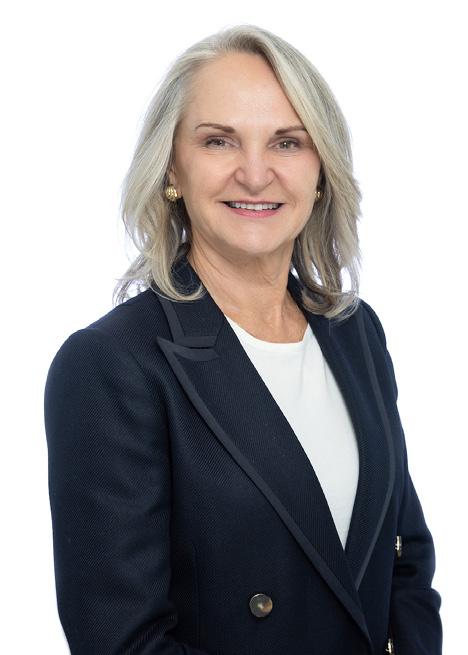
Over the last five years our region has seen a significant increase in innovative cancer research efforts which have both reached and impacted positively our patient community; those who are at risk of and those who are living with and beyond a cancer diagnosis.
University College Cork established the prestigious ‘Professor Gerald O’Sullivan Chair in Cancer Research,’ in honour of the late Professor Gerald O’Sullivan, the pioneering medical and research professional who founded the Cork Cancer Research Centre (now Cancer Research @UCC) with the goal of developing new treatments for cancers with poor prognoses. His mission was to advance translational cancer research that directly benefits patients and building on his legacy, Professor Roisin Connolly now leads impactful, patient-centered cancer research aimed at improving outcomes for cancer patients.
These cancer research efforts have bridged the excellent science and expertise housed across our university campus with regional Cancer Centres, and have been presented to global audiences at international cancer conferences.
We can attribute the significant progress made over the last five years to the transformative philanthropic support received by UCC from Breakthrough Cancer Research which led to the arrival of our Professor Gerald O’Sullivan Chair in Cancer Research, Professor Roisin Connolly. This strategic partnership has been a cornerstone in advancing key initiatives for the College of Medicine and Health (CoMH) including strengthening the bridge between UCC and the Health Service Executive (HSE) through the Organisation of European Cancer Institutes (OECI) initiative. This collaboration has developed the CUH/UCC Cancer Centre as an entity and is vital as we strive to integrate academic research with clinical practice; ensuring that innovations in cancer treatment and care are rapidly translated into improved patient outcomes.
Professor Connolly recognised the strength of the cancer research community in UCC and the need to build robust bridges to the health service to enable the so called “translational cancer research loop” with resulting patient impact and a change in how we practice cancer research and care. Looking to model cancer research centres of excellence internationally she has attracted an academic support team to Cancer Research @UCC through Health Research Board funding to ensure a high-quality process for developing and conducting
investigator-initiated research in our health service. This team provides critical support to a network of hospital-based researchers across the public and private sector and our UCC researchers, enabling them in developing and conducting UCC sponsored translational and clinical projects and bringing international patient-focused research partnerships to our region. This is ensuring that our community have access to cutting-edge science, treatments and interventions typically only available in larger urban centres.
With Professor Connolly’s leadership and vision we have leveraged additional global philanthropic support and have recruited top academic oncologists across cancer disciplines to amplify her efforts. Already the output of these efforts is clearly visible, with UCC opening in 2024 the first investigatorinitiated trial in patients with brain cancers and a treatment optimisation study in patients with a diagnosis of multiple myeloma which aims to minimise treatment side effects for individuals. These oncology research appointments are crucial to our vision of creating an Academic Health Science System that will bridge the gap between research and clinical practice. By embedding research in the clinical environment, we can bring innovative therapies to patients more quickly, improving outcomes and quality of life. The patient voice is central to these projects, with the UCC Cancer Trials Group Patient & Public Involvement Panel helping to improve communication on cancer research and clinical trials.
Beyond the Chair’s impact, additional support from Breakthrough Cancer Research through research grants has been instrumental in furthering our mission. These contributions have enabled us to offer clinical cancer research training opportunities for oncology trainees, expand our PhD programmes, and embark on innovative research projects aimed at improving patient outcomes. We remain deeply grateful for this partnership and look forward to continuing our shared journey toward conquering cancer.
Professor Helen Whelton Head, College of Medicine and Health, University College Cork.

Life changes when you, or someone you love, is diagnosed with cancer. Too many of us have been affected by cancer and know this from lived experience.
In Ireland, one person dies every hour from the disease, that’s 9,000 people every year.
Philanthropy plays a transformational role in research and medical advances in universities, and on behalf of Cork University Foundation I am delighted to co-introduce this impact publication, truly a showcase of what can be achieved with philanthropic investment combined with the vision and drive of an internationally renowned academic and oncologist together with her dedicated team.
In addition to other research grant funding in the university, Breakthrough Cancer Research philanthropically funded the Chair of Cancer Research at UCC, named in honour of Professor Gerald O’Sullivan, who, as mentioned earlier, was an incredible visionary leader in cancer research.
While there are more cancer survivors than ever before, Ireland lags behind USA and the rest of Europe in terms of survival. A lot more needs to be done to prevent cancer, improve rates of early detection and provide individualised cancer therapy and cures, as well as treatments and support for cancer survivors.
Research is critical: to prevent cancer, to improve earlier detection, to provide individualised cancer therapy and cures.
Research needs funding and Cork University Foundation is committed to supporting and fundraising for Cancer Research @UCC.
Someone we know will benefit.
Kerry Bryson CEO, Cork University Foundation.

As a research intensive university we know that to tackle health and social disparities among the world’s populations, we need experts from multiple disciplines and sectors to think radically and collaborate in re-imagined ways to find solutions and cures.
UCC Futures is our research campaign that brings the best and brightest research leaders to UCC to ensure excellence in collaborative research. There is no doubt that Professor Roisin Connolly’s appointment has signalled a step change in the evolution of cancer research at UCC.
The net beneficiaries of this investment are the patients, who stand to gain the most from our ongoing efforts to advance cancer care. And, in today’s new era of precision medicine, doctors partner with patients to collaborate on achieving the best possible outcome for every patient, and to reverse illnesses.
UCC is deeply grateful for the sustained support from Breakthrough Cancer Research whose vision was a catalyst for transformational change in cancer care and treatment. I would also like to acknowledge their support of Clinical Cancer Research Fellowships, and other vital funding, which has further bolstered our research capacity.
Today Cancer Research @UCC is driving the highest quality investigator led translational and clinical research trials for some of the most challenging and poor prognosis cancers to find the next step change in precision oncology.
The following pages highlight many developments, findings and achievements which will impact treatment, care and outcomes for patients, and will lead to a brighter future for cancer care in our region.
Professor John O’Halloran President, University College Cork.

Philanthropy plays a critical role in advancing cancer research and care internationally.
I have seen this firsthand having spent over a decade in a prominent US cancer institution before my return to Cork to take up the Professor Gerald O’Sullivan Chair of Cancer Research role in 2019. Breakthrough Cancer Research had a vision for elevating cancer research in this region to the next level through support of this Chair position, and I believe that over the coming pages of this Impact Report it will be clear that we are well on the path to delivering on this ambitious vision.
If we wish to truly have an impact on cancer, we must bring scientists and researchers together with clinicians and patients. The best centres internationally have developed models whereby clinicians have protected time for research and collaboration, while continuing to care for patients such that the critical issues affecting them are front and centre in our research endeavors. I am thus deeply grateful to Breakthrough Cancer Research for their support, and in particular their critical donation which facilitated my joint appointment with the university and the healthcare system, a position that enables me to advance cancer research regionally and integrate cutting-edge science from our university and partners into patient care.
In this report, we share the significant achievements of the past few years catalysed by my position and a vision to the future where Cancer Research @UCC is a leader nationally and internationally in patientcentred cancer research and clinical trials. We have secured additional global philanthropic support from UPMC to expand our team of academic oncologists, moving us closer to the standards of international centres of excellence. This support has allowed us to dedicate more time to research and foster collaborations that prioritize patient benefit. We anticipate further growth across cancer disciplines over the coming years, strengthening the connection between our regional hospitals and the university, and expanding our portfolio of investigator-led projects that bring the best technology, treatments, and interventions to our regional patients.
We have leveraged national grant funding to build an academic support team that guides both bench and clinical researchers regionally in developing and conducting high-quality, patient-focused research.
We are also thrilled to have established numerous new international partnerships with academic and clinical trial organisations and industry partners. Crucially, my role has been instrumental in paving the way for our regional cancer services to achieve European accreditation by the OECI. Our focus on quality in clinical care, research, education, and teaching positions us for continuous improvement and alignment with best cancer centres globally.
Most importantly, we have brought the patient voice central to our cancer research mission through our Patient & Public Involvement Panel. The coming pages of this report illustrate the remarkable progress we have made with our patient partners, built directly on the foundation laid by Breakthrough Cancer Research for the Professor Gerald O Sullivan Chair in Cancer Research. We look forward to continuing our partnership as we look to the future.
Professor Roisin Connolly Director, Cancer Research @UCC; Professor Gerald O’Sullivan Chair in Cancer Research.
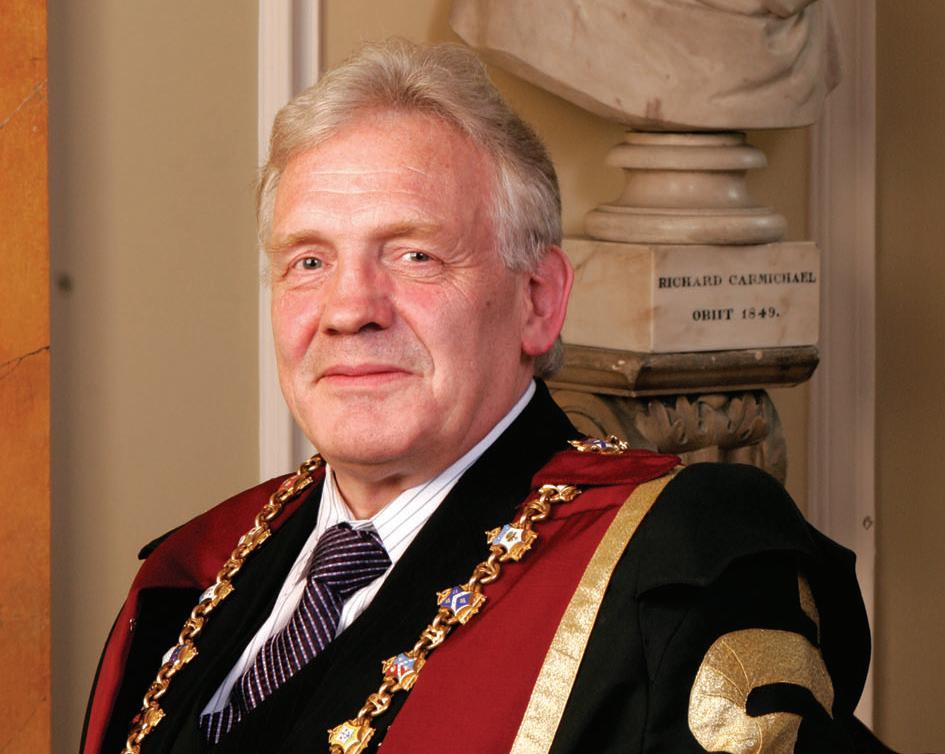

Under the leadership of Professor Connolly, Cancer Research @UCC secured €2.37 million from the Health Research Board (HRB) for a five-year collaborative project, forming the UCC Cancer Trials Group (UCC CTG). The total funding was €4.2 million, which included contributions from UCC, Cork University Hospital (CUH), the South/Southwest Hospital Group, and other partners including Breakthrough Cancer Research who are funding the Clinical Cancer Research Fellowship programme with UCC CTG.
The UCC CTG unites oncology clinical trials units in Cork and Waterford to expand access to cutting-edge cancer trials in southern Ireland, enhancing patient care. With a goal to reach patient participation in clinical trials to the national benchmark (6%) and further to 10% in line with international centres of excellence, the project emphasizes local and international trial development, training opportunities, and a strong Patient & Public Involvement focus.
The UCC CTG supports a dedicated team, promotes high standards in clinical trials, and fosters collaborations across the public and private sectors. This network brings advanced science, treatments, and survivorship care to patients, with positive feedback from the community.
“The UCC Cancer Trials Group is a collaborative network, working with other HRB-funded trial groups to achieve national goals in bringing clinical trials to patients efficiently. By fostering partnerships, we’re not only enhancing access to trials but also empowering our researchers to develop impactful investigatorinitiated studies that address patient needs across Ireland.”
DR LAIA RAIGAL, MANAGER - UCC CTG
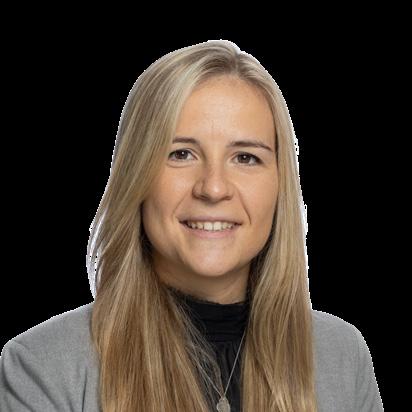
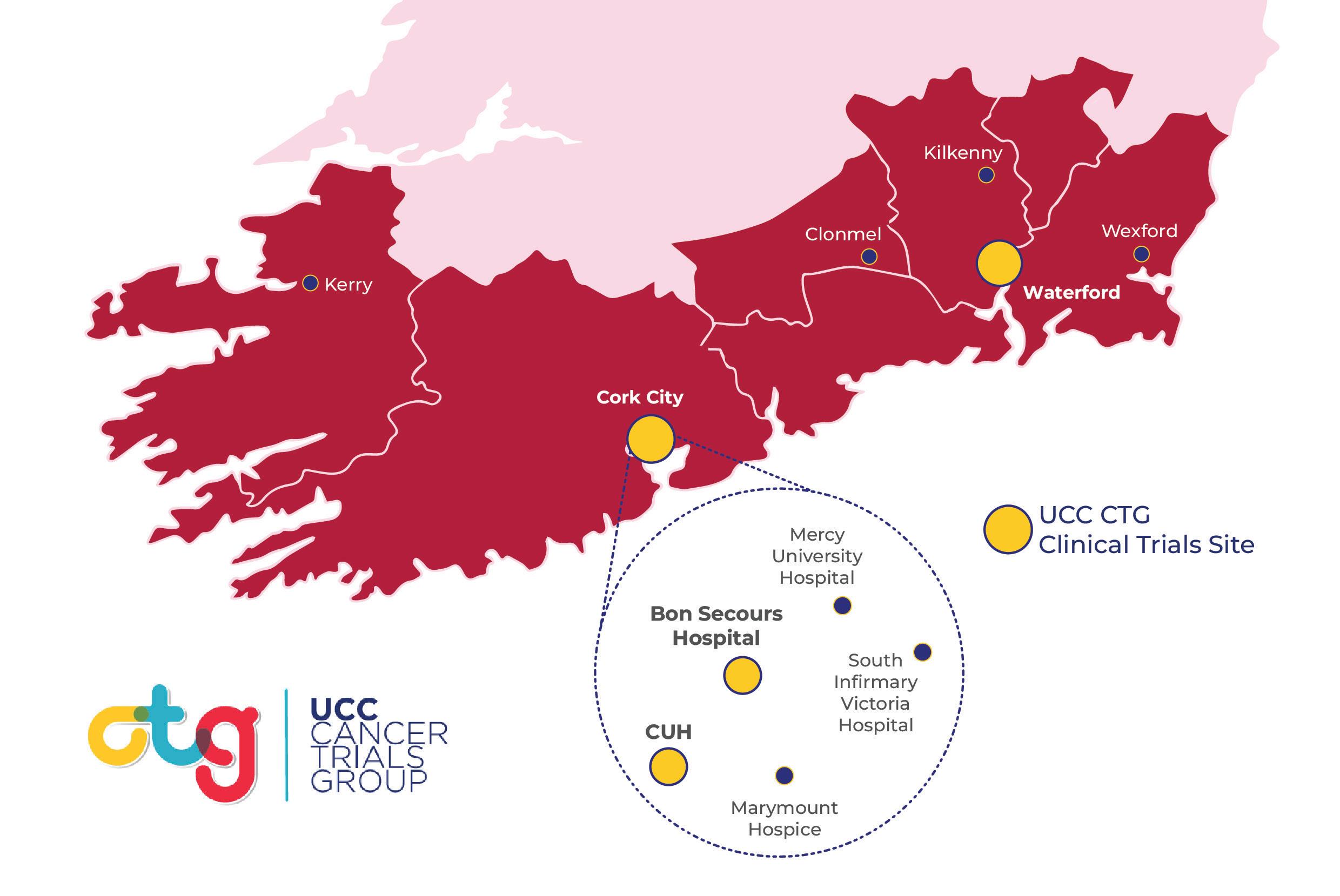
Partnership and collaboration are at the heart of Cancer Research @ UCC’s mission to deliver high-quality, patient-centered cancer trials. A crucial partnership with the HRB Clinical Research Facility-UCC (CRFUCC) has enabled the UCC Cancer Trials Group (UCC CTG) to conduct research that meets rigorous international standards. The CRF-UCC provides the infrastructure and experienced professionals essential for implementing complex, regulated trials focused on improving patient outcomes.
A pivotal member of the support team is Dr Erin Crowley, who was appointed as the Academic Study Coordinator for both CRF-UCC and UCC CTG. As a liaison between clinical researchers and UCC, Dr Crowley facilitates the seamless setup and operation of investigator-initiated trials, driving them from concept to impactful, patient-centered studies. Her role has been instrumental in supporting clinicians and researchers in bringing new ideas to life as trials that directly benefit patients across cancer centers in the region.
Dr Crowley’s efforts were recognised in 2024 when she received the Irish Cancer Society Support Staff of the Year Award. Her work strengthens collaboration between UCC and the CRF-UCC, empowering patients with opportunities to participate in academic cancer research.
This dedicated excellent support team has been essential to UCC CTG’s success in bringing cutting-edge trials to patients, demonstrating how partnership and skilled coordination can accelerate research that changes lives.
“Joining UCC CTG after completing my Master’s in Public Health with a focus on Epidemiology offered me opportunities to delve deeper into clinical trials. Working in oncology and haematology has expanded my expertise, enhanced my personal and professional growth, and opened networking opportunities.”
ALI NOURELDEIN
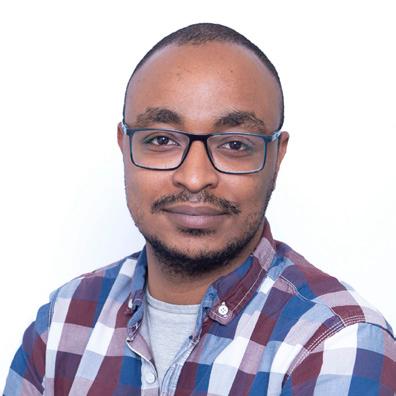
“I joined UCC CTG after pursuing my Master’s in Public Health at UCC. As an experienced pharmacovigilance specialist in oncology, I’ve gained invaluable clinical research skills here, leading studies and receiving training in research integrity, public involvement, and patient care.”
RUBY SANDRA OLIVERA
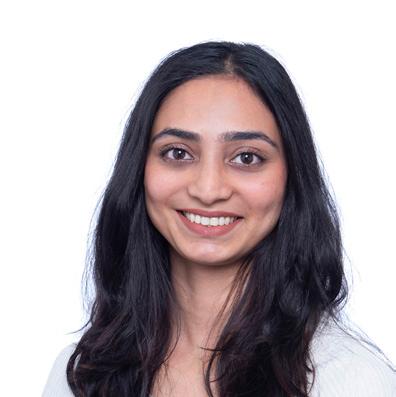
“My shared position has really allowed me to strengthen collaboration between the two clinical research infrastructures. Seeing the impact this has had in the last two years has been incredibly rewarding and makes me so optimistic in our ability to give our patients opportunities to participate in academic clinical research in the future.”
DR ERIN CROWLEY, ACADEMIC STUDY CO-ORDINATOR - UCC CTG/ CRF-UCC

Ruby Sandra Olivera is a Data Manager at Cancer Trials Cork at CUH/UCC Cancer Centre
Ali Noureldein is a Data Lead at Cancer Trials Cork* at CUH/UCC Cancer Centre
*Cancer Trials Cork is part of UCC CTG.

Cancer Research @UCC is proud to have developed and is now providing ongoing support to our UCC CTG Patient and Public Involvement (PPI) panel. We believe that the patient voice is fundamental to quality research and are so grateful to those who have partnered with us from the development of our first investigator-led trial (LYSA) as a new team.
PPI refers to the active involvement of patients, their families, and the wider public in the planning, design, delivery, and evaluation of healthcare services. The goal of PPI is to ensure that the needs and perspectives of patients and the public are considered in healthcare decision-making, and to improve the quality and accessibility of healthcare services.
A new PPI panel was established in 2023 by the UCC CTG and is composed of patients and caregivers who provide input on the design and conduct of our research studies, as well as the patient experience of participating in clinical trials. Our PPI team has also assisted us in the development of our UCC CTG clinical trials website which includes information for patients about clinical trials and about getting involved in PPI activities. The website includes information for patients on what PPI is and how they can become involved in the process.

Through the stories to follow and the patient testimonials, it is clear that our team are not only impacting patients in the clinic with new research options, but also impacting positively the lives of those who are contributing to our work through the PPI panel. We are truly honoured to have them helping us as we progress the cancer research agenda.
Launched in 2019, the LYSA study assessed the feasibility of introducing a Women’s Health Initiative cancer survivorship clinic in Ireland, providing a tailored survivorship service to women following treatment for breast and gynecological cancers. The LYSA Trial included PPI from the beginning of the trial and will support our team in communicating final results to the cancer community.
The late Sonya Lynch, our first PPI team member, was named as the Society’s first ever Public & Patient Involvement Champion of the Year, an award that acknowledges the contribution of the public and patients who are at the heart of its research projects. Sonya was a dedicated patient advocate who used her lived experiences to champion for improved supports and services for those living with metastatic breast cancer.

Dr Laia Raigal was awarded Research Support Staff of the Year for her role in the development and running of the LYSA study. Her role included getting the study open in Cork University Hospital and later in Galway, helping to recruit patients into the study, capturing reliable data so that the study results would be accurate for time of analysis and publication.
“Being involved in cancer clinical trials with UCC at a PPI level helps conquer my personal fear of cancer returning. Great strides and little steps are being made each day towards the 100% cure of cancer and this gives me immense hope.”

Art4Knowledge was an art therapy intervention project that ran from January to June 2023 for patients with or beyond a cancer diagnosis, families of patients, and clinical trials teams of the UCC Cancer Trials Group, facilitated by the Crawford College of Art and Design.
The sessions broke down barriers between patients with cancer, families of patients, and clinical trials teams. Through creative expression, the project became an innovative way to learn about the human experience and build bridges of communication within cancer care. This project was the forerunner for the establishment of a formal PPI Panel which enabled patients voice to be front and central in our research.
Kindly funded by the Health Research Board.

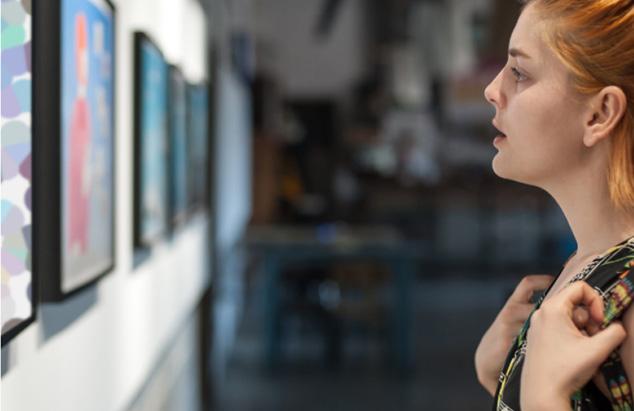

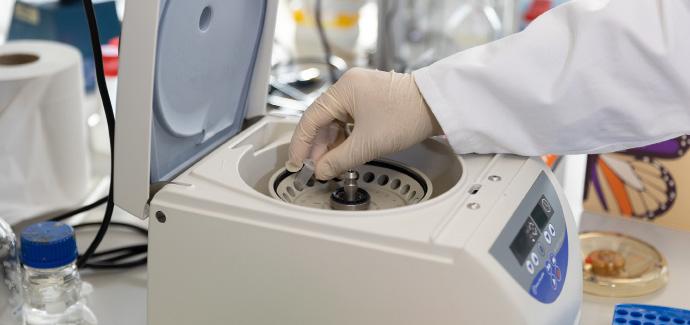
As Cancer Research @UCC builds academic capacity, the team have developed a critical new global partnership with UPMC. UPMC, a global academic medical centre based in Pittsburgh, Pennsylvania, USA, and with locations across Ireland, has supported funding for two Professors of Medical Oncology – key strategic positions in moving us closer to the standards of international centres of excellence.

The appointment of two academic oncologists, funded by UPMC alongside support from the HSE and the National Cancer Control Programme (NCCP) will establish the foundation for research collaboration between UCC, the University of Pittsburgh and UPMC Hillman Cancer Centre. The first of these appointments was Professor Jack Gleeson as Associate Professor of Medical Oncology in UCC and Consultant Medical Oncologist at CUH.
These professorships are fundamental to obtaining future large scale collaborative funding, receiving regional accreditation from the Organisation of European Cancer Institutes, and will lead to innovative scientific breakthroughs in treatment of cancer. This international collaboration with UPMC will be integral to the progression of cancer research and will provide greater access to clinical trials for patients, while also embedding cutting-edge research in clinical care.
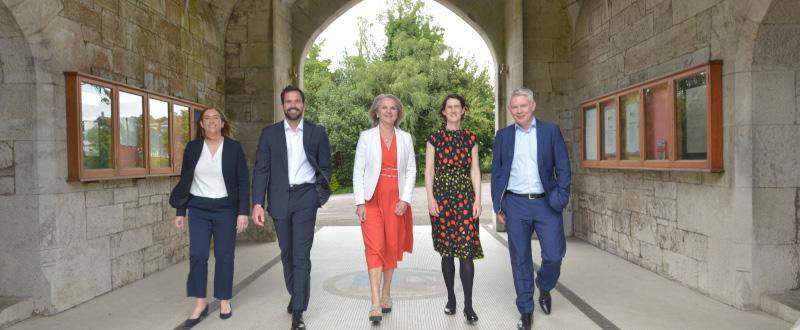
“The generous philanthropic donation from UPMC will have far-reaching impacts for Cancer Research @UCC, our regional hospitals and beyond. These professorships will drive forward novel discovery that will link the bench to the bedside and will have impact on future patient care.”
EIMEAR KEOHANE, ASSOCIATE DIRECTOR ADVANCEMENT, UCC

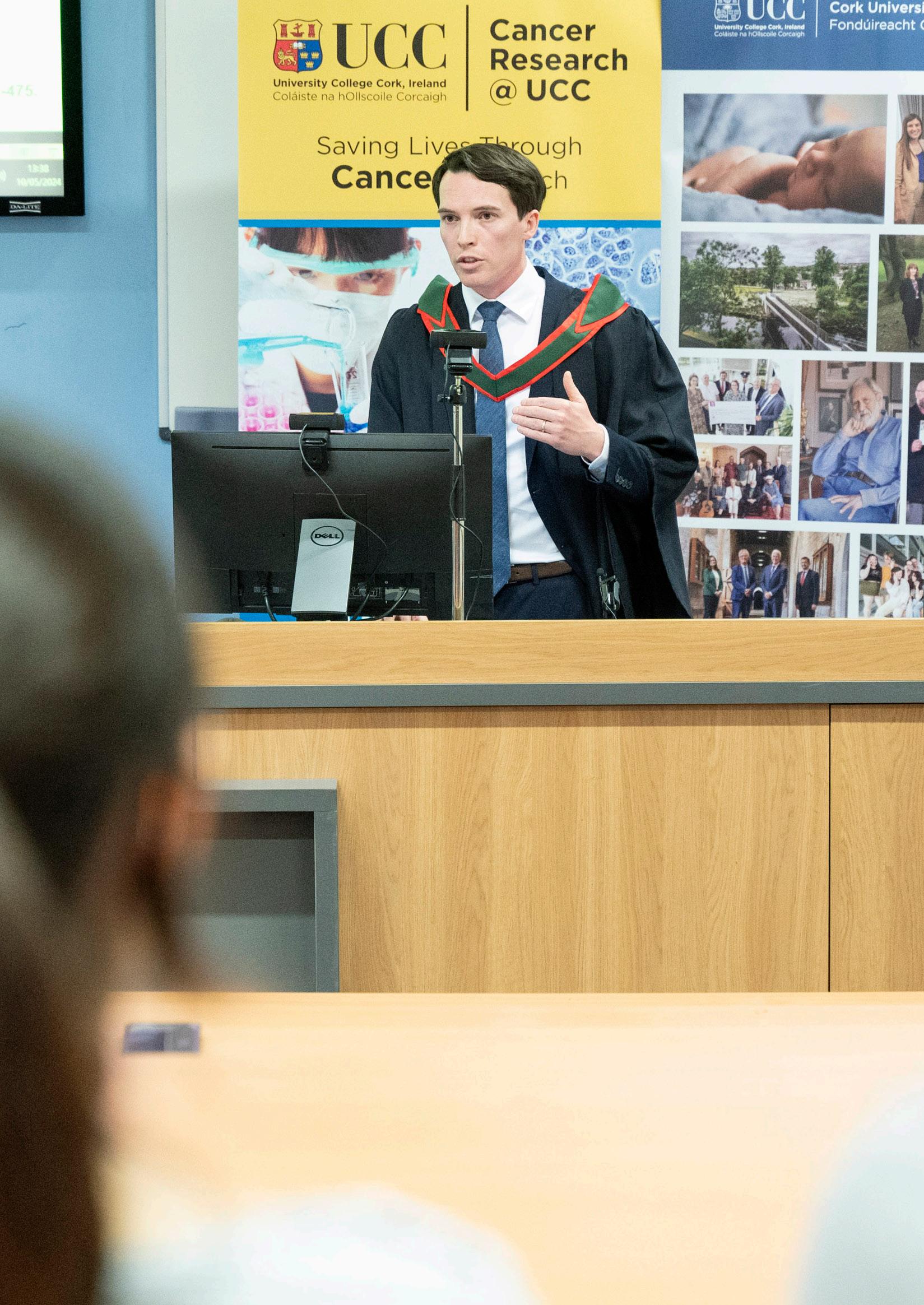
Cancer Research @UCC has welcomed the first UPMC Professor, Jack Gleeson in a shared role as Associate Professor of Medical Oncology in UCC and Consultant Medical Oncologist at CUH. His addition to the team enables continued growth of the centre’s clinical and translational cancer research portfolio and will create further collaborative opportunities.
Professor Gleeson’s research interests include Genitourinary and Neuro-Oncology cancers and he is co-chair of both the Neuro-Oncology multi-disciplinary team in CUH and the Cancer Trials Ireland Neuro-Oncology Disease Specific Sub Group (DSSG).
Since his arrival Professor Gleeson has established two investigator-initiated clinical trials which are currently active and accruing patients. The LIAM Mc trial is a 12-week programme for men with advanced genitourinary cancers, offering physiotherapy, nursing, dietary support, and holistic care education to provide personalised coping tools for living with cancer. This trial was showcased at a worldwide renowned conference, American Society Clinical Oncology Annual Meeting 2024.
His second study, the IMPROVE TMZ study is Cancer Research @UCC’s first Neuro-Oncology trial. Professor Gleeson is also the main PI on this multi-centre trial aimed at brain cancer and collaborating with researchers in the School of Pharmacy and APC Microbiome Ireland.
Professor Gleeson has recently been awarded the Irish Cancer Society Networking Award 2024 to establish and lead a regional brain tumour research group, spanning healthcare and academia in the Cork region.

“The relationship between UCC and UPMC, and the support received for academic oncology positions, is paramount to developing a cancer research ecosystem that enables efficient and innovative international collaboration between our university researchers and our healthcare systems; with patient benefit front and foremost.
We are excited that Professor Gleeson has joined our team and anticipate ongoing expansion of our clinical and translational cancer research portfolio and collaborative opportunities with his arrival.”
PROFESSOR ROISIN CONNOLLY
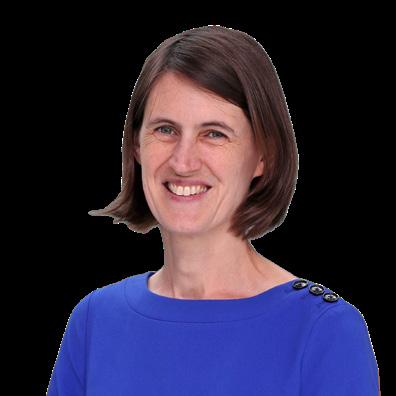
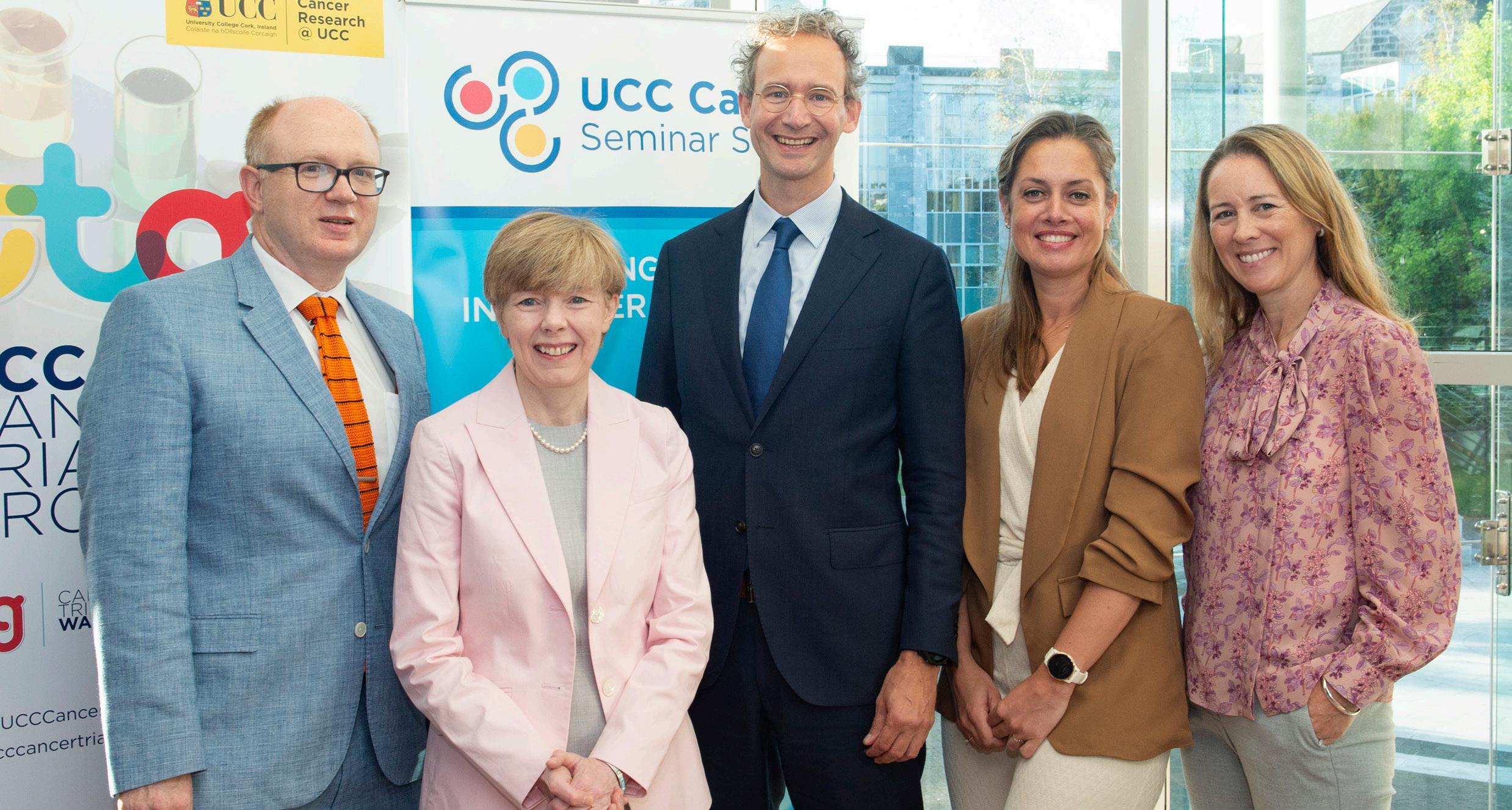
With nearly half of all cancer patients requiring radiotherapy, UCC’s appointment of Chair in Radiation Oncology is a strategic step forward (second in Ireland and first female).
Professor Aisling Barry, a Trinity College graduate and highly awarded expert in radiation oncology, brings extensive experience from Canada’s Princess Margaret Cancer Centre, where she led pioneering programmes in palliative and oligometastatic radiotherapy.
Professor Barry’s research focuses on advanced radiotherapy for challenging cancers (liver, pancreas) and oligo-progressive metastatic disease (a type of metastatic cancer where only a few sites show progression, while other sites remain stable or controlled) supported by numerous grants. Since joining UCC in September 2022, she also serves as a Consultant Radiation Oncologist at CUC/UCC Cancer Centre, leading Ireland’s first public hospital programme offering stereotactic body radiotherapy for liver cancer. This high-precision treatment provides new options for patients with limited alternatives, paving the way for clinical trials in underserved populations.
In 2023, Professor Barry hosted the first Pancreatic Cancer Symposium at UCC, bringing together national experts to discuss advancements and challenges in pancreatic cancer care. This event, hosted by Cancer Research @UCC and made possible by philanthropic support, was a valuable platform for collaboration and knowledge-sharing, and Professor Barry plans to host it biennially to keep driving progress in this critical area.
In addition to her clinical and research roles, Professor Barry serves as a lecturer and module coordinator for Ireland’s only MSc programme in Radiation Therapy at UCC, where she actively supervises postgraduate and PhD students. Committed to training the next generation of researchers as well, she also mentored Kimya Ghaffarian during her Breakthrough Cancer Research funded summer scholarship. Her appointment further strengthens Cancer Research @UCC’s dedication to advancing radiation oncology research, education, and patient care.
“As one of only two protected academic radiation oncologists in Ireland, I am committed to advancing precision and translational radiation oncology to promote equity of access, improve patient outcomes, and ensure a high quality of life for all individuals undergoing cancer treatment.”
PROFESSOR AISLING BARRY, CHAIR OF RADIATION ONCOLOGY - CANCER RESEARCH @UCC
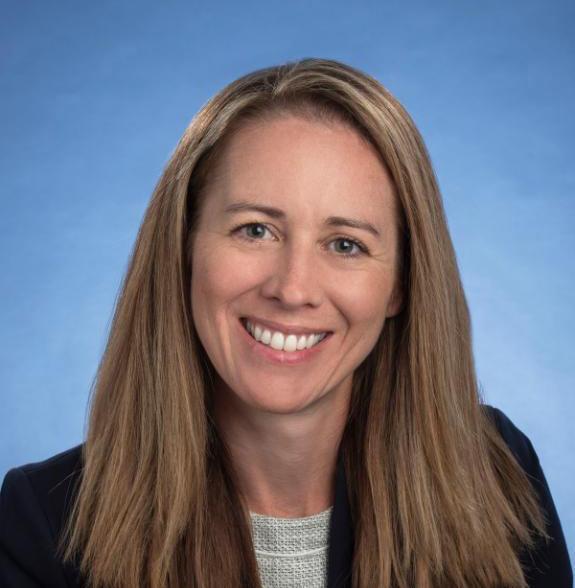
Thanks to the implementation of the Linking you to Support and Advice (LYSA) trial, we have demonstrated impactful evidence that has directly influenced clinical practice.
This trial has been instrumental in guiding decision-making processes, ultimately leading to the establishment in 2024 of a Survivorship Clinical Nurse Specialist role at CUH/UCC Cancer Centre, funded by the HSE National Cancer Control Programme. This dedicated specialist now provides essential support to women following cancer treatment, addressing their unique needs during recovery and enhancing the quality of post-treatment care.
The LYSA Trial, a Women’s Health Initiative survivorship study funded by the Irish Cancer Society and by Breakthrough Cancer Research focused on supporting 200 women with post cancer treatment early-stage breast and gynaecologic cancer. This nurse-led clinic with dietitian support assessed if it was feasible for patients to take part in the study, complete the electronic surveys and partake in symptom management visits. Led by Professor Connolly and Professor Hegarty, UCC School of Nursing and Midwifery, this investigator-initiated trial was conducted in both Cork and Galway.
The LYSA Trial was the first investigator-initiated trial supported by the UCC Cancer Trials Group and marked a milestone as the first fully co-designed study with patient partners, who contributed from the study’s conception to the presentation of results.
Having presented results at one of the most prestigious global oncology conferences, ASCO, and multiple national disseminations, this project demonstrates how researchdriven initiatives translate into meaningful improvements in patient care, reinforcing our commitment to improving survivorship and supporting patients in their journey beyond cancer.
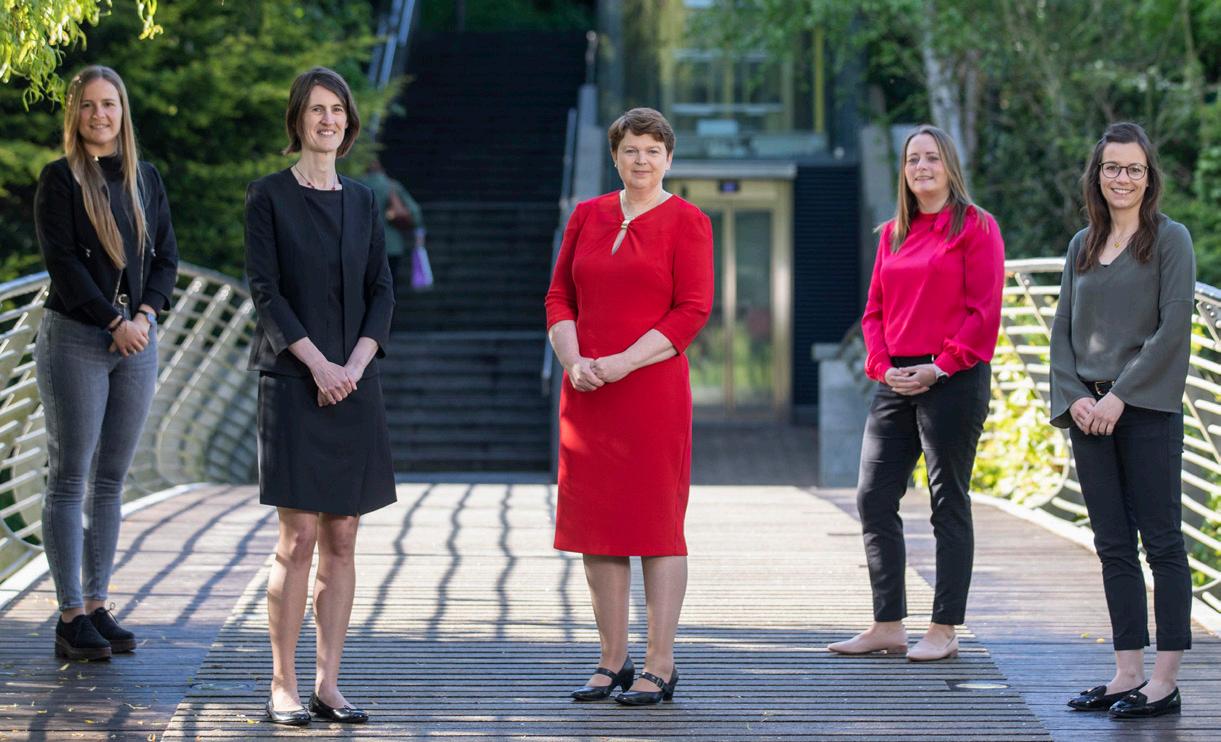
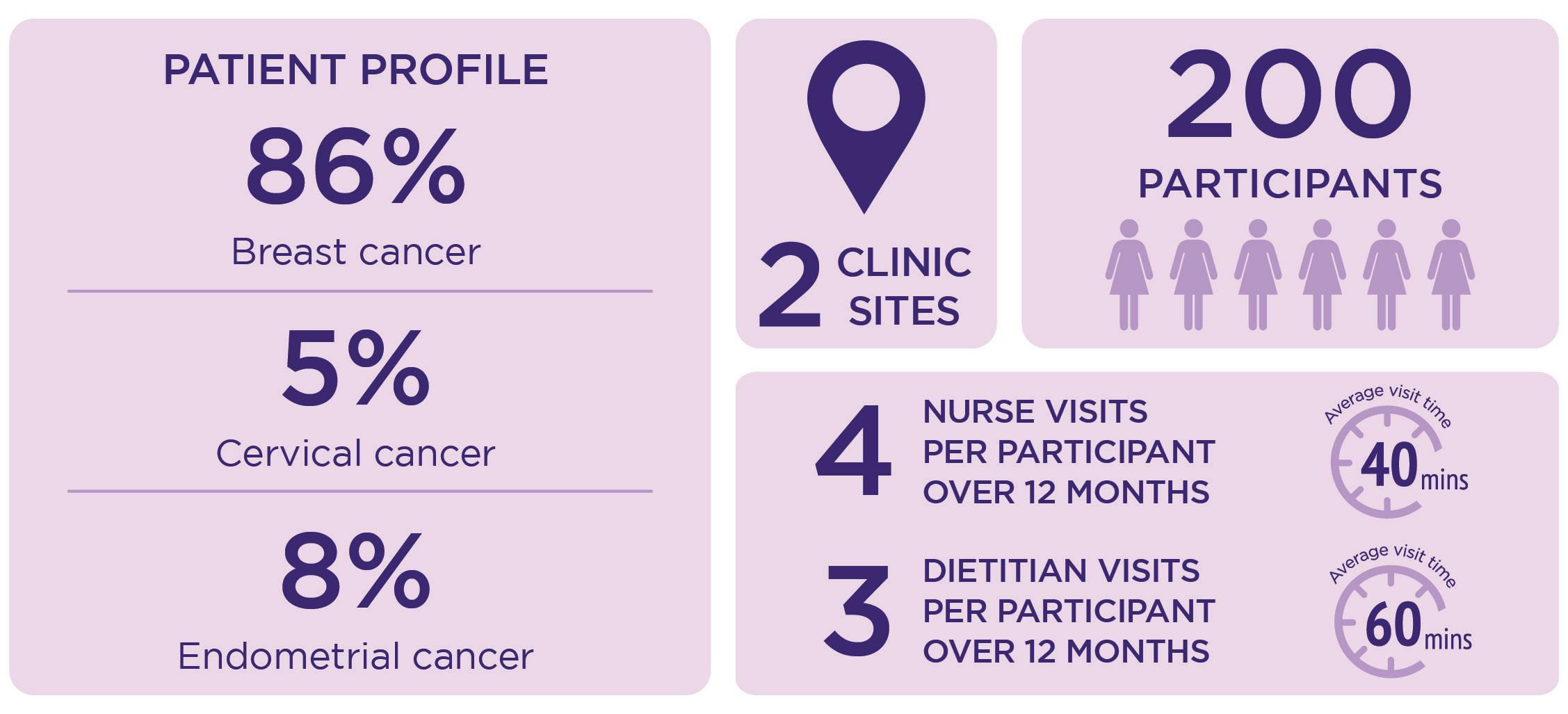
“Thank you so much for everything over the past year. The support and encouragement was invaluable at all stages. I really do not know what I would have done without you all”
LYSA PARTICIPANT
“It has been an incredible journey leading the first women’s survivorship clinic for the LYSA Trial. I have witnessed firsthand how research can transform clinical practice and improve patient care.”
KATE O’CONNELL, LYSA TRIAL LEADING NURSE
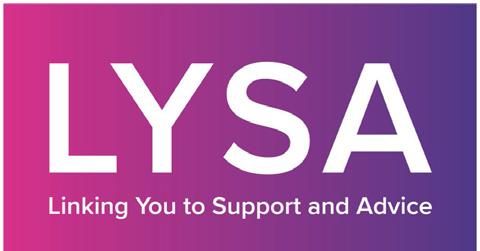
The LIAM Mc trial is a 12-week multidisciplinary intervention programme designed for men with advanced genitourinary cancers. LIAM Mc stands for Linking In with Advice and supports for Men Impacted by Metastatic Cancer.
The study aims to assess the feasibility of introducing a supportive care programme alongside routine oncology follow up at the CUH/UCC Cancer Centre, and to determine the benefits of this approach. The programme offers supports in the form of intensive physiotherapy, nursing support, dietary guidance, and holistic care education sessions to male patients with cancer. Preliminary findings from this ongoing project have shown benefits to patients, including improved physical wellbeing, better coping strategies, and enhanced overall quality of life. This UCC sponsored study is funded by the Irish Cancer Society Men’s Health Initiative award with the goal of providing personalised tools and coping strategies for men living with cancer.
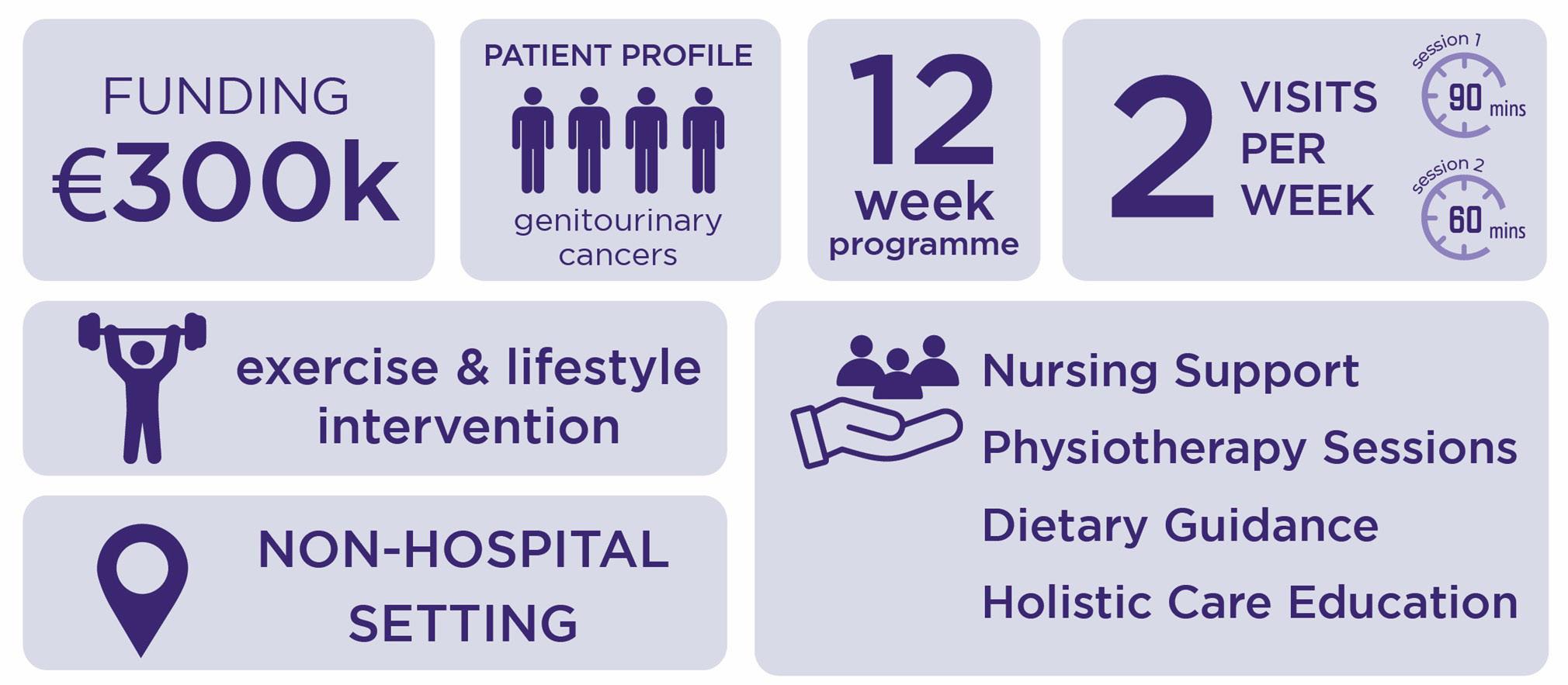

“The trial came at a time where we were both very lost and it really helped him to get back to his confidence and strength. He really enjoyed the camaraderie with the other lads.”
QUOTE FROM PATIENT’S WIFE
Professor Roisin Connolly has the honour of being the first Irish Breast Cancer Research Foundation (BCRF) Investigator.
BCRF is the largest funder of breast cancer research globally, with 70 million annually spent on research to ultimately stamp out breast cancer. Professor Connolly is passionate about ensuring that each individual patient with breast cancer has a treatment recommendation that is tailored to them as an individual; such that the right treatment is given to the right patient at the right time.
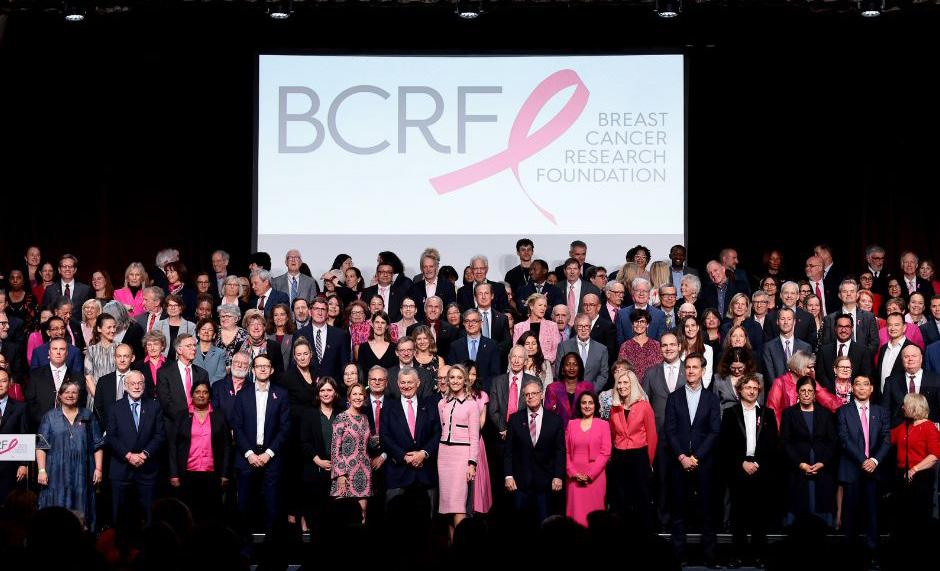
The goal is to ensure cure from cancer, while minimising unwanted treatment side effects. Her BCRF funded Precision Immunotherapy research team is investigating better “biomarkers” for patients with an aggressive breast cancer subtype called triple-negative breast cancer (TNBC). The standard of care approach to treating early-stage TNBC includes a combination of multiple chemotherapies with immunotherapy, which can have significant side effects.
In collaboration with Professor Mark Tangney, she is investigating whether bacteria and cells of our immune system residing in breast tumours and surrounding tissue can give insights into better ways of treating this type of breast cancer. Professor Connolly hopes to expand this research to other breast cancer settings as the cancer microbiome has huge promise for improving outcomes for patients once we can understand more fully its role in this disease which affects one in eight women in their lifetime.
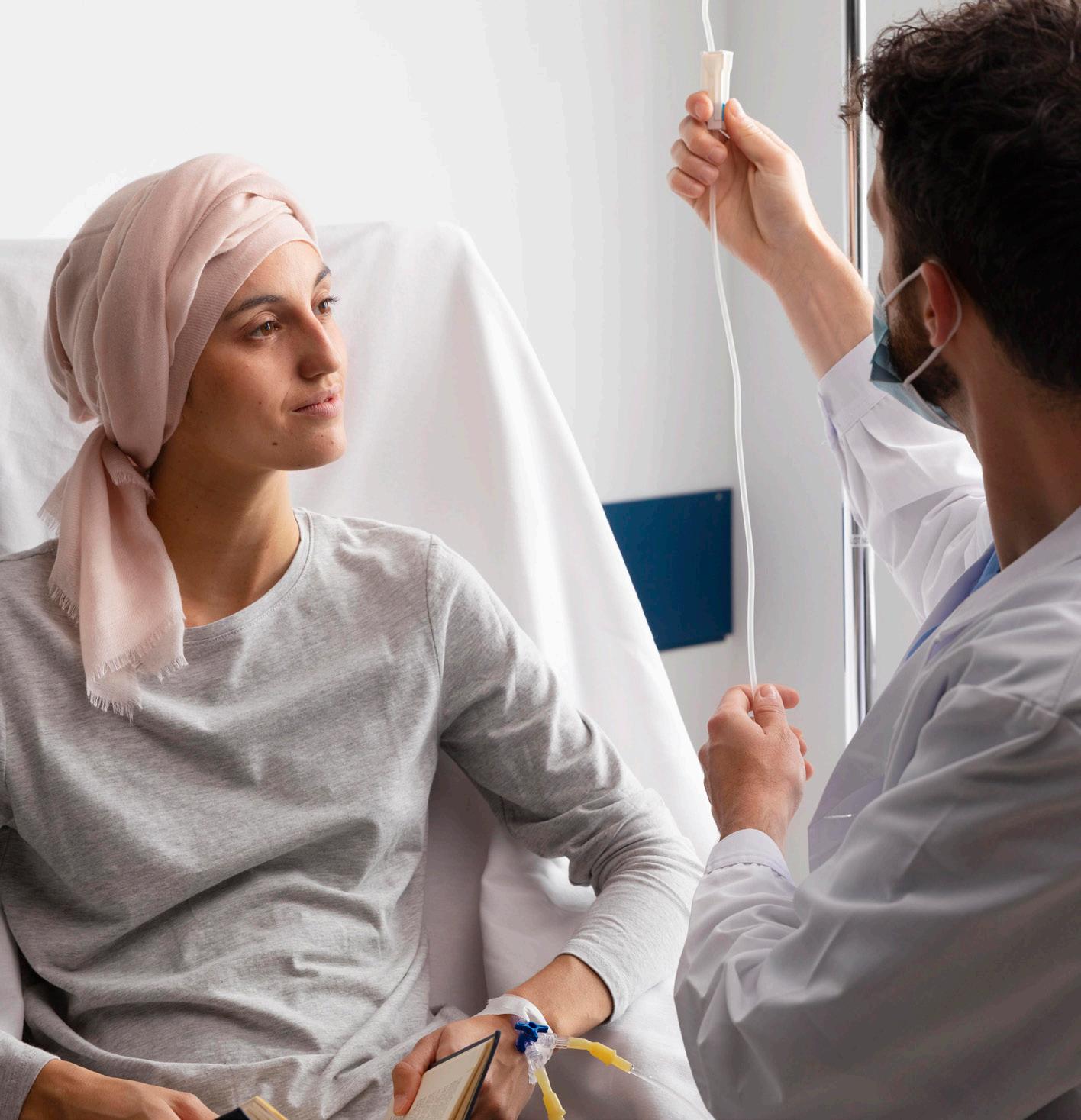
“Biomarkers of treatment outcome can help identify which patients are most likely to benefit from specific treatments, allowing for more targeted and effective care. This is especially important for cancer patients, as treatments can often have significant side effects. Our aim is that our findings will one day guide clinicians’ decisions, enabling personalised treatment plans for each patient.”
EMILENE DA SILVA MORAIS, POST DOCTORAL RESEARCHER - BCRF
PROJECT
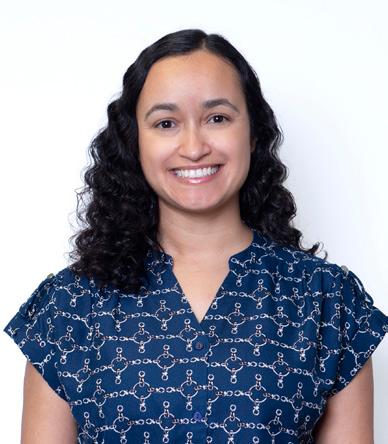
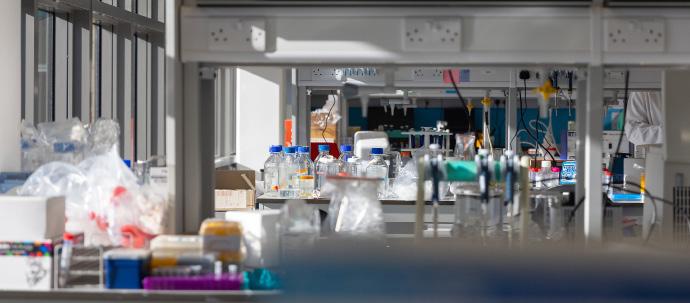
Professor Mark Tangney’s group in the Centre has a track record in studying associations between bacteria and cancer. This work is quite unique internationally, and embodies multidisciplinary teamwork, with the involvement of researchers with backgrounds in cancer biology, microbiology, medicine, protein science and computer science.
With patients in mind at all times, Professor Tangney works closely with his clinical colleagues in the centre, who are key in the design and execution of all his research. This activity also links the centre to APC Microbiome Ireland at UCC, Ireland’s internationally renowned centre for microbiome research. Breakthrough Cancer Research has contributed funding to many such projects over the years.
Professor Tangney’s group is at the forefront of identifying the presence of a microbiome in patient tumours. As pioneers in this area, they are tackling this problem through improvements in bioinformatic, sequencing and sample processing procedures, which are now being adopted internationally as best practice.

The team is also one of few labs around the world developing expertise in computer-aided protein design, collaborating with world leaders in the field. One of the team, Dr Yensi Flores Bueso (left), spreads her time between Cork and the USA, and is currently located in Seattle, where her supervisor there just won a Nobel Prize for his protein design breakthroughs.
Professor Tangney’s group is currently conducting multiple clinical studies on the cancer microbiome, all focused on cancers with poor prognoses. He serves as the UCC Principal Investigator in Precision Oncology Ireland—Ireland’s SFI-funded virtual national cancer centre—where he leads the microbiome and cancer initiatives within this consortium, co-funded by Breakthrough Cancer Research. His involvement has resulted in the rapid growth and deepening of collaboration with multiple national hospitals and labs, promoting the establishment of further clinical-focused research.
“The team’s research involves examination of cancer patients’ microbiomes and generating bacterial “maps” for different patients. This group has discovered that the presence of different bacteria can alter the effect of chemotherapy. The group has also developed an AI tool to diagnose the presence of cancer based on what bacteria are present, and has even used bacteria themselves as therapeutics.”
PROFESSOR MARK TANGNEY

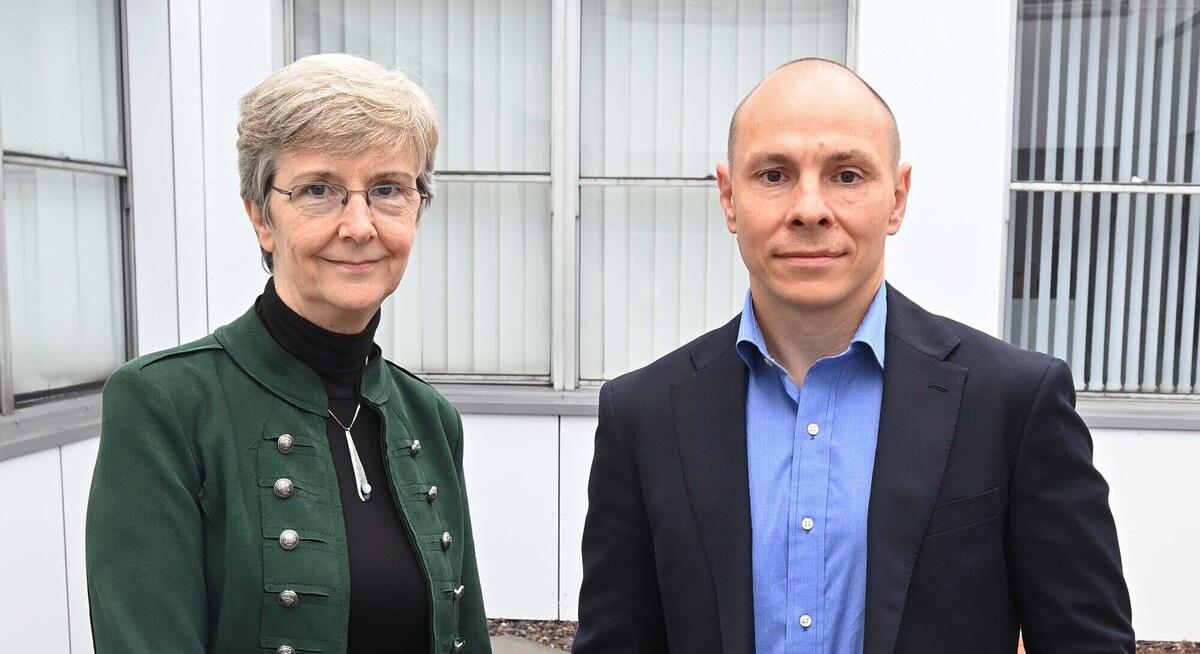
With support from the Cancer Research @UCC team, clinical researchers like Professor Mary Cahill and Dr Vitaly Mykytiv have successfully launched and conducted high-quality studies that ultimately benefit patients.
Professor Mary Cahill combines a full-time clinical role with extensive collaborative research. Her work has covered a range of topics, including autophagy in leukemia with Dr Sharon McKenna at Cancer Research @UCC, demand management of lab tests for myeloma with Sphere Scholar Sharon Cadogan, and siRNA in suppressing harmful gene expression in acute leukemia. She has served as PI and co-PI on numerous clinical trials.
Professor Cahill is a founding member of Blood Cancer Network Ireland (BCNI), which established a nationwide phase one clinical trials network and established Biobank Blood Cancers Ireland (BBCI). This initiative has brought novel clinical trials to CUH/UCC Cancer Centre, high quality data on cancer registration in Acute Myeloid Leukemia (AML), and enabled innovative survivorship research in lymphoma.
The Cork arm of the BCNI Biobank is housed in the Cancer Research @UCC laboratory and is dedicated to the collection, processing, and storage of samples from patients with haematological malignancies, following informed consent. The Biobank contains samples from over 250 patients obtained from CUH/UCC Cancer Centre. Over time, the genetic make-up of the stored samples will be analyzed and made available to researchers.
Cliodhna Nolan (opposite) is a research assistant working under the guidance of Professor Cahill on the BCNI Biobanking project, collecting and processing samples. In October 2023, Cliodhna began her MSc by Research, concentrating on the use of cell-free DNA in high-grade non-Hodgkin’s lymphoma alongside FDG PET CT scan parameters. This part-time project will span two years, allowing Cliodhna to continue her work with the BCNI Biobank.
The ultimate goal of her research is to support the use of liquid biopsies for monitoring and prognosing highgrade non-Hodgkin’s lymphoma patients, aiming to reduce the need for invasive tumour biopsies and enhance patient outcomes through improved monitoring tools. Her project is overseen by a team of supervisors, including Professor Mary Cahill.
Multiple myeloma (MM) is the second most common blood cancer. Unfortunately, there is no cure for MM with nearly 400 people diagnosed in Ireland every year.
After the initial treatment of MM which may include several cycles of chemotherapy and a stem cell transplantation, most patients are then started on “maintenance therapy”. Common drugs used for maintenance therapy, such as Lenalidomide, can have debilitating side-effects which include severe tiredness, diarrhea and skin rashes and may make people more prone to infections. Understandably, these side effects can affect people’s quality of life and make recovering from their first phase of treatment even more difficult. They are also expensive drugs. While maintenance therapy is considered beneficial, some studies suggest that there may not be any benefit to continuing maintenance treatment indefinitely for all patients diagnosed with multiple myeloma.
A Maintenance Discontinuation Study led by Consultant Hematologist at CUH/UCC Cancer Centre Dr Vitaliy Mykytiv is examining whether people on maintenance therapy for at least 2 years and who are not at high-risk of relapsing can stop their treatment and still stay in remission.
Stopping treatment could have a massive impact on the quality of patients’ lives, and lead to significant financial savings for the health service. One of the most important parts of the study is that patients are given all of the information and they can choose to continue or stop their treatment, knowing all of the risks and benefits that this would involve.
To date, the study has been a fantastic success and is well ahead of recruitment goals. Patients have been incredibly giving of their time and have been very happy to support this important research question.
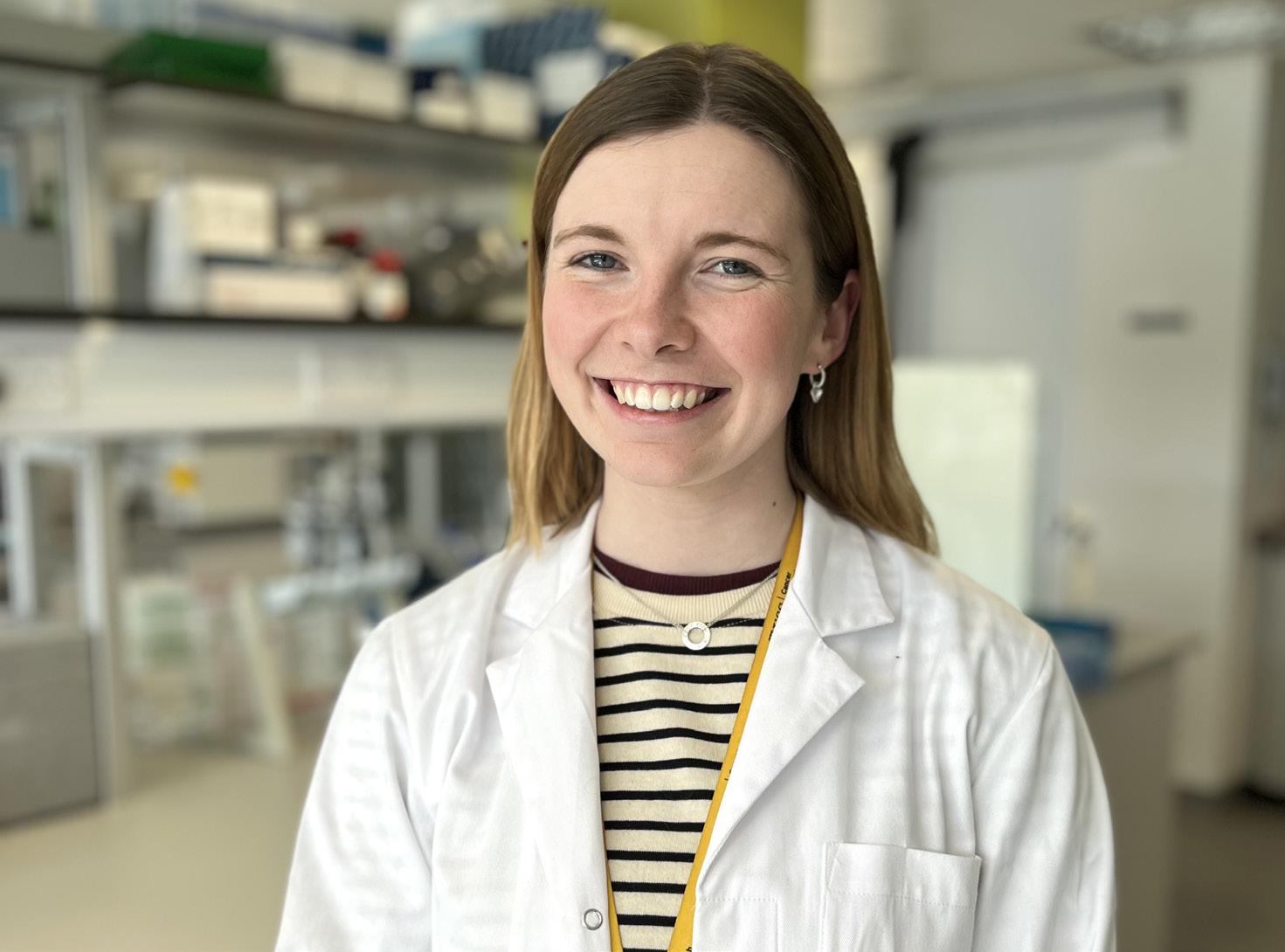
“The study has recruited 38 patients to this trial, 19% ahead of target. Feedback from patients on this trial has been extremely positive. One recent patient was able to take up a once in a lifetime holiday gifted to them from their family that would not have been possible were they still on maintenance and not a participant in this study.”
LAURA SHEEHAN, RESEARCH NURSE MANAGER LEAD
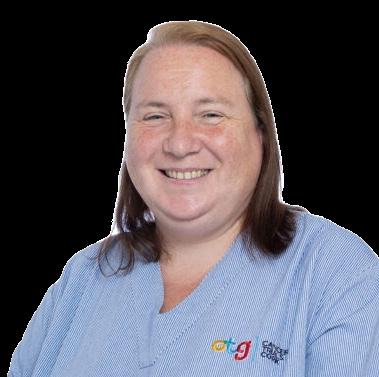
“This study would not have been possible without the UCC Cancer Trials Group, and specifically the support of the Academic Study Coordinator within the group. The Cancer Trials Group have been critical in implementing this research, supporting it from early concept development and throughout the entire approval process.”
DR VITALIY MYKYTIV, CONSULTANT HEMATOLOGIST

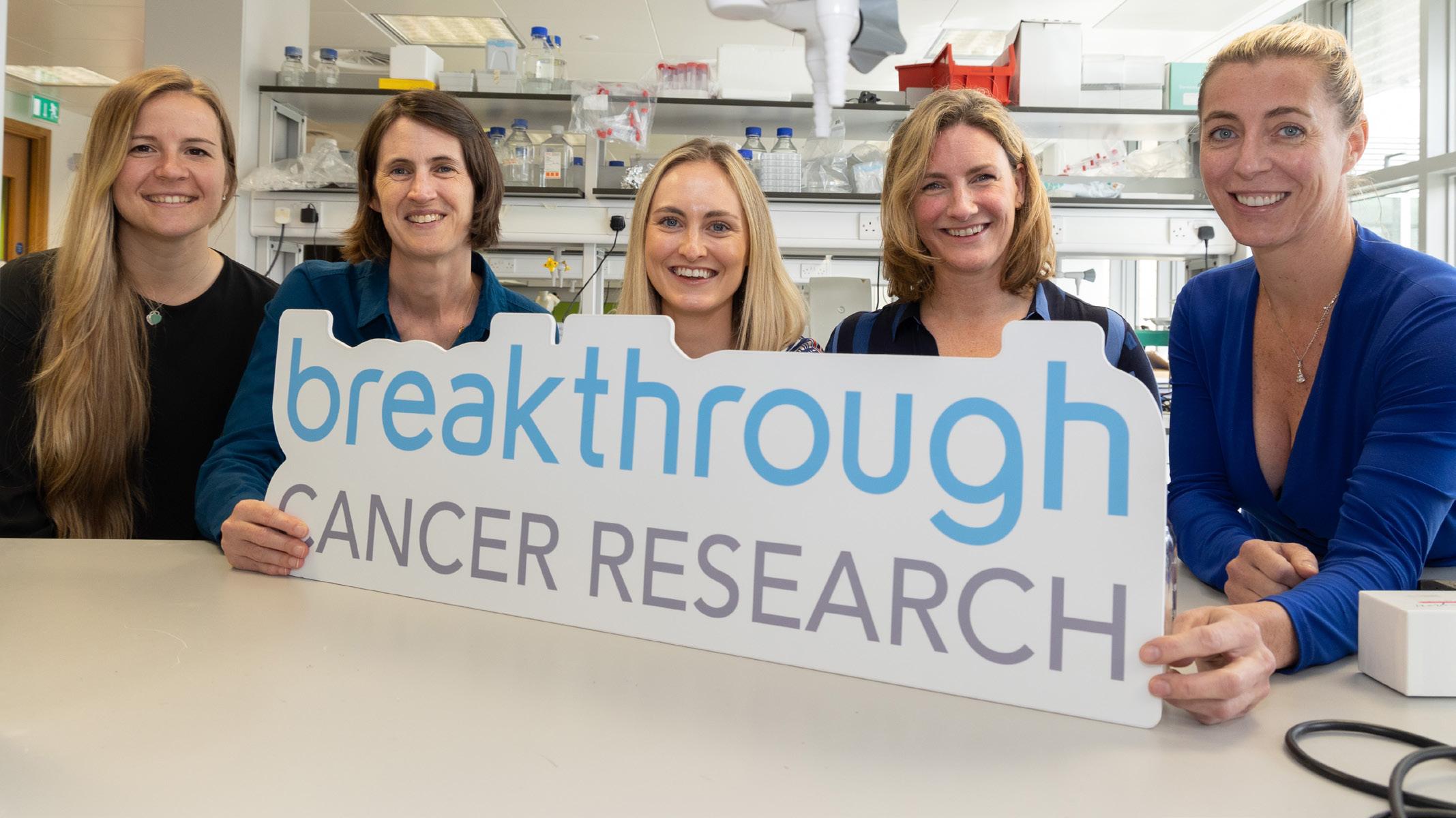
Cancer Research @UCC has a long history of postgraduate cancer research training. Over the last few years we have built on this foundation to expand our training and mentoring opportunities for the next generation of cancer researchers and research staff.
Breakthrough Cancer Research has been instrumental in this expansion through support for the first dedicated Clinical Cancer Research Fellowship hosted in the centre. We envision expansion of such fellowships, which provide experience in translational and clinical cancer research from study conception, design, conduct, analysis and final presentation for clinical trainees across disciplines. Through this exposure early in their careers we hope to encourage a future in academic cancer medicine for a significant proportion of our future cancer specialists.
Our team supports research and clinical trials staff across our network, which is essential for recruitment and retention. UCC offers an online Master’s in Clinical Trials, giving employees a flexible opportunity to advance their careers in the field.
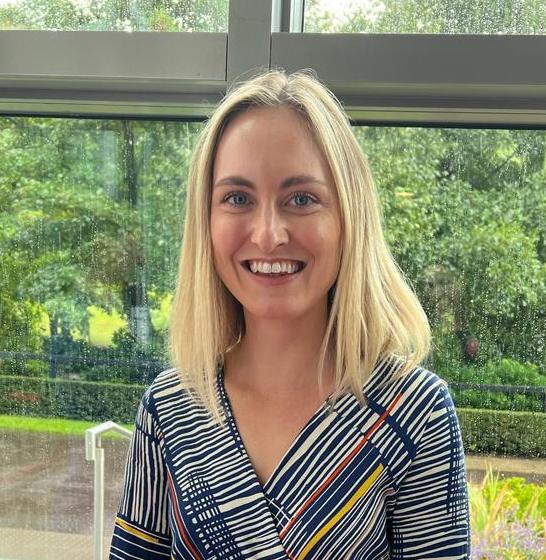
In 2022, Dr Maeve Hennessy (left) was awarded the inaugural Breakthrough Cancer Clinical Research Fellowship to support a two-year period of clinical research under the mentorship of Professor Roisin Connolly.
During her time at Cancer Research @UCC, Dr Hennessy represented Ireland at the 2023 Methods in Clinical Cancer Research Workshop organised by the European Organisation of Research and Treatment of Cancer (EORTC), European Society for Medical Oncology (ESMO) and American Association for Cancer Research (AACR).
Dr Hennessy successfully defended her MD in Clinical Medicine in 2024 which focused on the perioperative setting as a platform for breast cancer biomarker development. She is pursuing an additional cancer research fellowship overseas over the coming years at the University of Chicago, Michigan, USA.
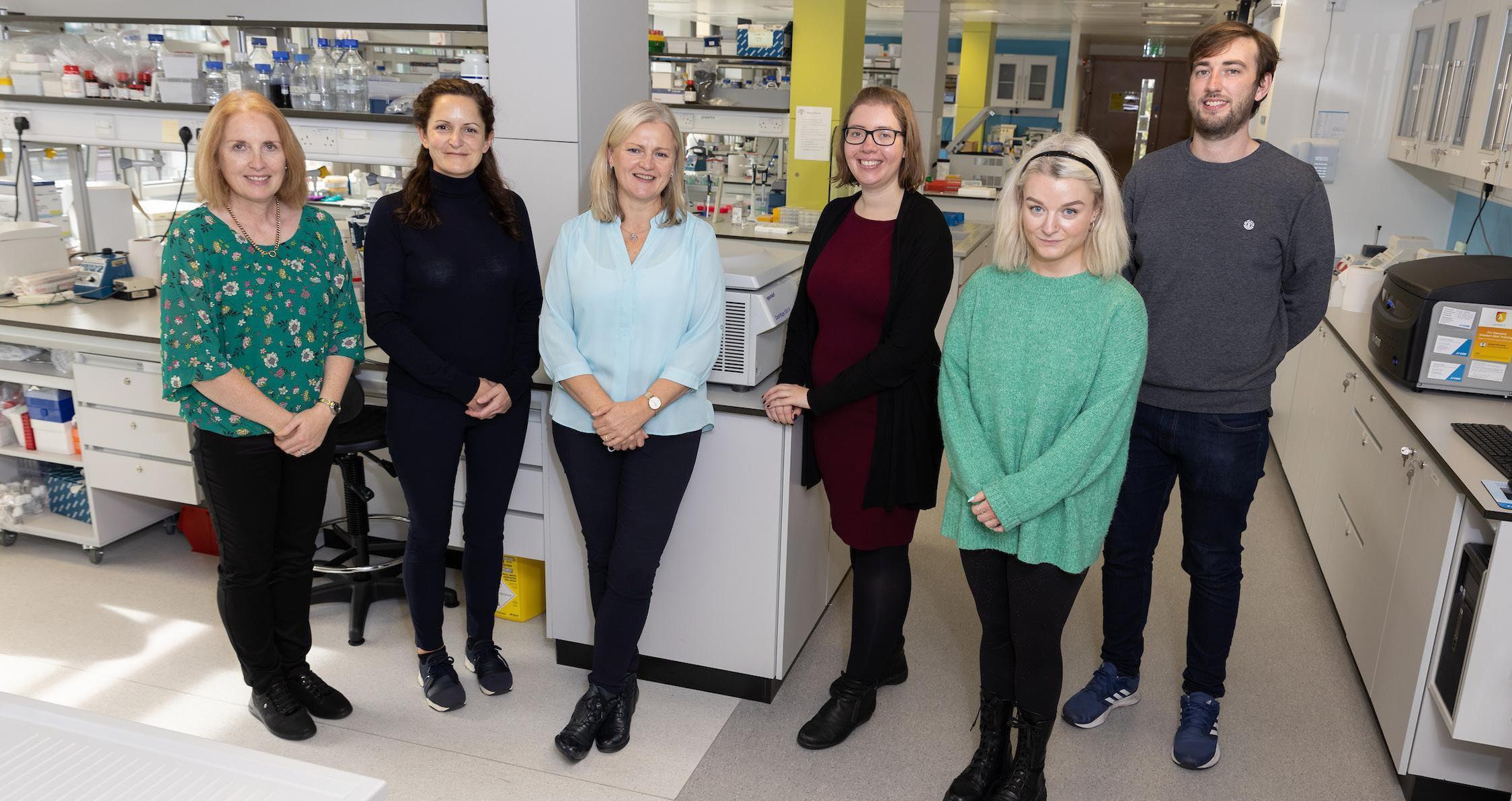
Dr Robert Hayes recently completed his PhD with the Autophagy team at Cancer Research @UCC titled “Evaluation of the role of MxA in chemosensitivity in oesophageal cancer”. Our team are grateful that Roberts PhD was funded by the Health Research Board and Breakthrough Cancer Research.
Following his undergraduate degree in Biochemistry and a Master’s by Research in UCC in 2019, Robert embarked on a PhD, investigating drug resistance in oesophageal cancer, under the supervision of Dr Sharon McKenna and Dr Tracey O’Donovan.
Research previously performed by this group had identified genetic differences between cancer cells that respond well to chemotherapy treatments and those that do not. Robert’s research has demonstrated that one of these genes called MxA, can influence both cell death and survival pathways in cancer cells. This research was presented at the 59th Irish Association for Cancer Research conference in 2022 where Robert was awarded the prize for best oral presentation. Robert’s first manuscript on this research will be published in the journal Cancer Medicine. It is hoped that a better understanding of how this novel gene can regulate the survival of cancer cells will facilitate new ways of targeting resistant cancers, so that chemotherapeutic regimes and overall outcomes can be improved for cancer patients in the future.
Robert is now applying for funding to take this research further, in the hope that this work will go on to benefit patient lives in the future. In the final stages of his PhD, Robert also worked as an assistant lecturer in the biochemistry department in UCC, allowing him to teach and inspire the researchers of the future.
Cliodhna Nolan
Ms Cliodhna Nolan is a research assistant working at Cancer Research @UCC under the guidance of Professor Mary Cahill, Principal Investigator of the Cork arm of the Blood Cancer Network Ireland (BCNI). BCNI is a collaborative network of clinicians, scientists, and population health experts across Ireland with a shared interest in blood cancer research.
In June of 2024 Cliodhna was amongst 30 participants selected to travel to Izmir Turkey to participate in the Translacore (Translational Control in Cancer European Network) biobanking training school.
“All the breakthroughs in cancer treatment that we see today had their origins in research conducted in the lab a decade or two ago, with researchers trying to understand cancer at a basic level and develop novel strategies to treat it. None of this would be possible without research support and kind donations from the public and from charities”
DR ROBERT HAYES, PHD
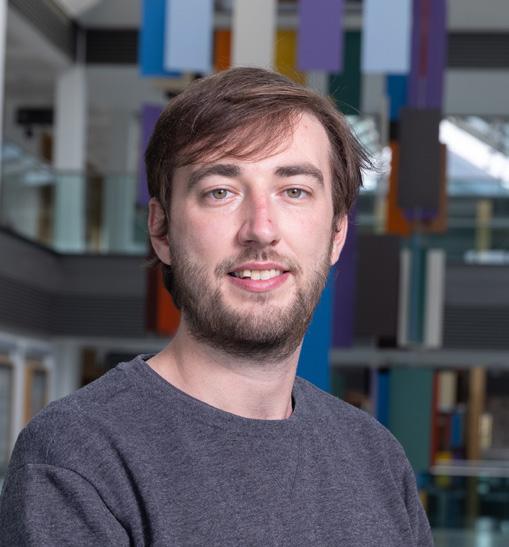
“The training expanded our knowledge, enhanced our technical skills, and offered a wonderful networking opportunity with researchers from around the world. A key takeaway of mine was the emphasis on planning biobanking for future research needs and the principle that the best biobank is an empty biobank!”
CLIODHNA NOLAN, RESEARCH ASSISTANT
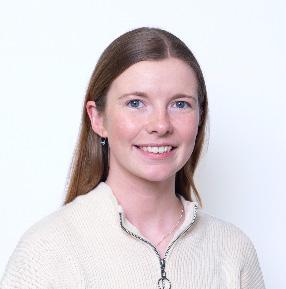
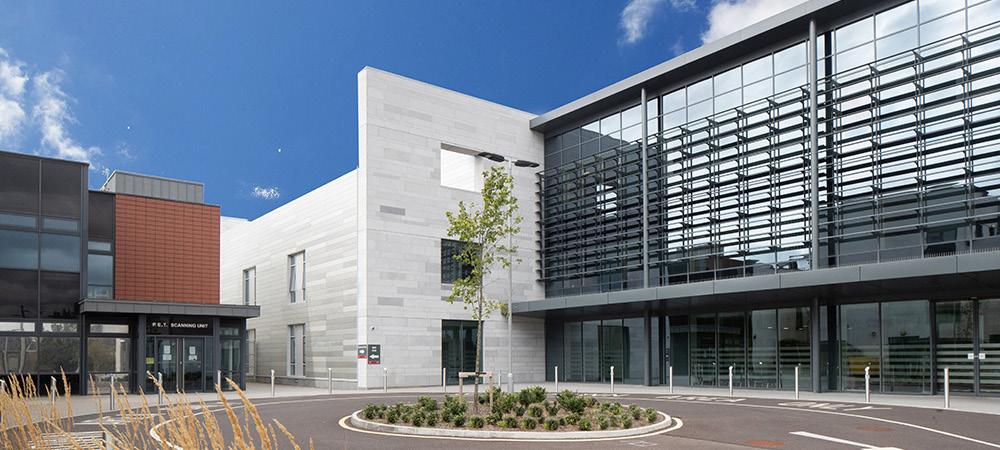
Cancer Research @UCC has been instrumental, with Professor Roisin Conolly’s leadership, in the CUH/UCC Cancer Centre’s drive for accreditation as an EU-Designated Cancer Centre, reinforcing its commitment to excellence in cancer research and patient care. As the research arm, it supports high-quality research and accelerates clinical trials to set new standards in patient outcomes.
Established in 2022, the CUH/UCC Cancer Centre formalises a longstanding alliance between UCC, CUH, and the HSE, combining regional strengths in research, education, and clinical care. Professor Connolly is the Academic Director of the Centre and believes that the framework laid out by OECI for integration of clinical care and academia will help us ensure the best care and outcomes for our regional community.
The accreditation process, including rigorous self-assessment and peer review, underscores the collaborative commitment of UCC and CUH. With a shared governance structure now in place, the Centre is well-positioned to advance clinical research, training, and inclusive regional cancer services.
This approach has the potential to facilitate a future application to OECI as a Comprehensive Cancer Network to quality proof and integrate cancer care regionally and coordinate communication, efficiency and innovation into the future.
“To make a meaningful impact on cancer, it’s essential to unite scientists and researchers with clinicians and patients. The most successful Cancer Centres worldwide have established models that allocate dedicated research time for clinicians, allowing them to continue patient care while ensuring that the critical issues affecting patients remain central to our research efforts.” said Professor Connolly.
“Professor Roisin Connolly’s passion for improving patient care through excellence in research and innovation has driven strategic development in the CUH/UCC Cancer Centre and participation in The Organisation of European Cancer Institute’s accreditation project. Going forward, her leadership and relentless drive will ensure quality is fundamental to advances in cancer research, education, and patient care.”
PROFESSOR JOHN R
HIGGINS, CEOSOUTH/ SOUTHWEST
HOSPITAL GROUP
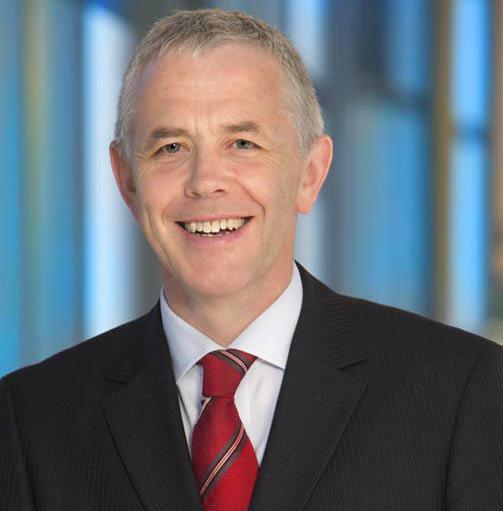
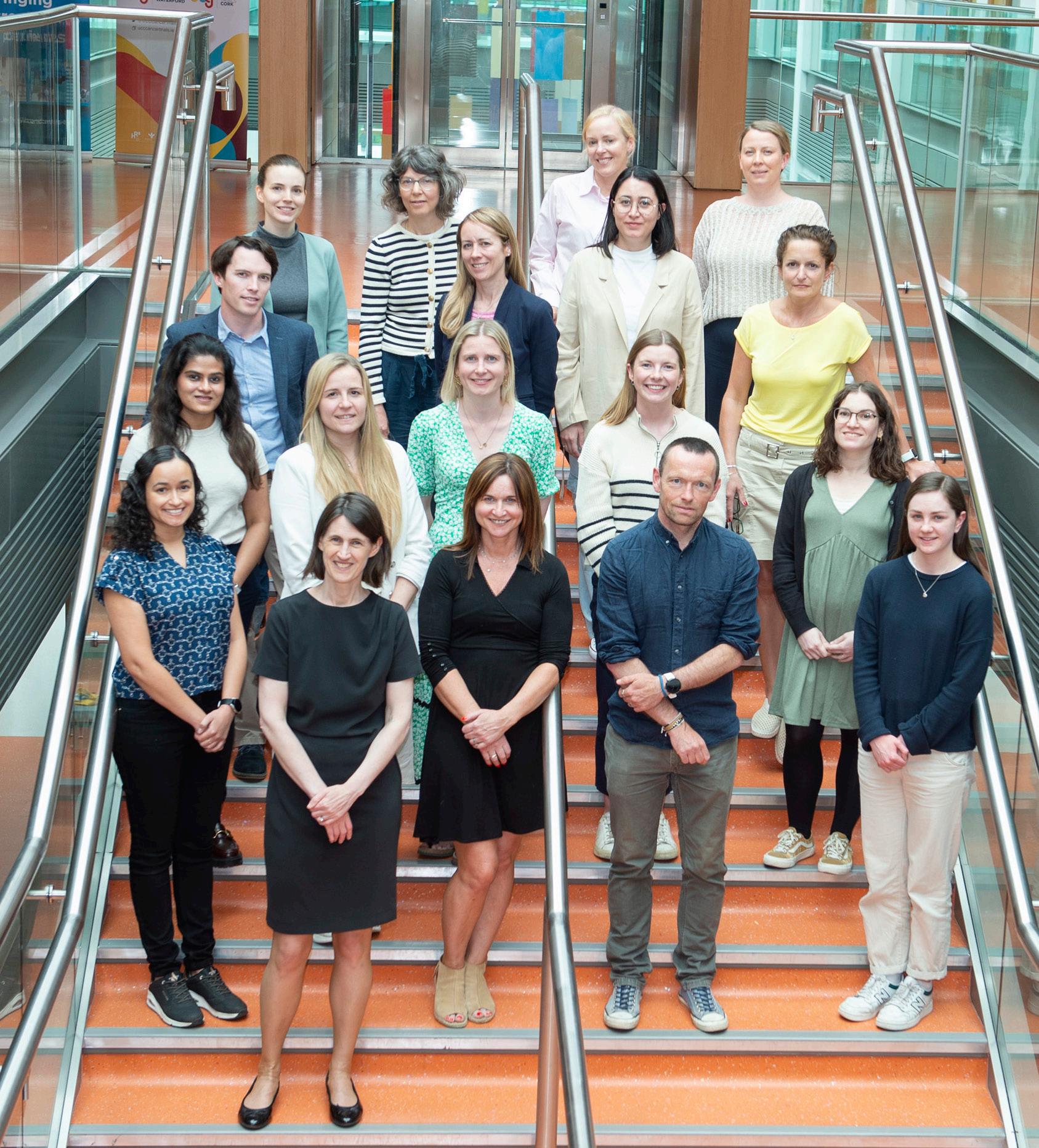
As we look to the future, I would like to again thank Breakthrough Cancer Research for their critical donation for the Professor Gerald O’Sullivan Chair of Cancer Research. The importance of this donation cannot be overstated when we consider the significant increase in our capacity to bring UCC science to our community.
Over the last five years we have made dramatic changes in our cancer research ecosystem. Most notably we have embedded input from patients and their families throughout the pathway of our cancer research. With this support, men and women with cancer are benefiting from supportive care intervention trials, led by our dedicated multidisciplinary teams of nurses, dieticians and physiotherapists.
Women with a new diagnosis of triplenegative breast cancer are contributing to cutting edge science in our recently activated presurgical biomarker trial, funded by the largest breast cancer research foundation globally. This research aims to individualise treatment decision-making for patients and adds to a national network of cancer microbiome research led by Professor Mark Tangney and team.
Under the leadership of Professor Jack Gleeson, those suffering from brain cancers are enrolling in a new clinical trial examining why some patients may have more side effects with our standard chemotherapies and radiation therapies. And the arrival of the 1st Irish Chair in Radiation Oncology to our centre, Professor Aisling Barry brings much hope for those living with poor prognosis cancers such as hepatobiliary, pancreatic and oesophageal cancers.
But there is much yet to be done to achieve our vision of being leaders in bringing scientific cancer discoveries to our community with the goal of improving survival from ALL cancers. Over the coming years we will seek support to expand our team of academic oncologists across cancer disciplines to the largest in the country, develop a comprehensive cancer research fellowships programme to train the next generation of cancer scientists, and increase our growing portfolio of investigator-initiated clinical and translational cancer research studies to cater to the needs of our regional population. We will be a “go-to” for industry and academic partners nationally and internationally who wish to bring their science to the bedside, enabled by a regional integrated cancer network approach and competitive clinical trial activation timelines.
We are so grateful for all the support we have received to date, and are enthusiastic about further collaborations and partnerships as we move the needle forward in cancer survival and quality of life, such that Cork and Ireland will be recognised as one of the best internationally in the coming decades.
Professor Roisin Connolly

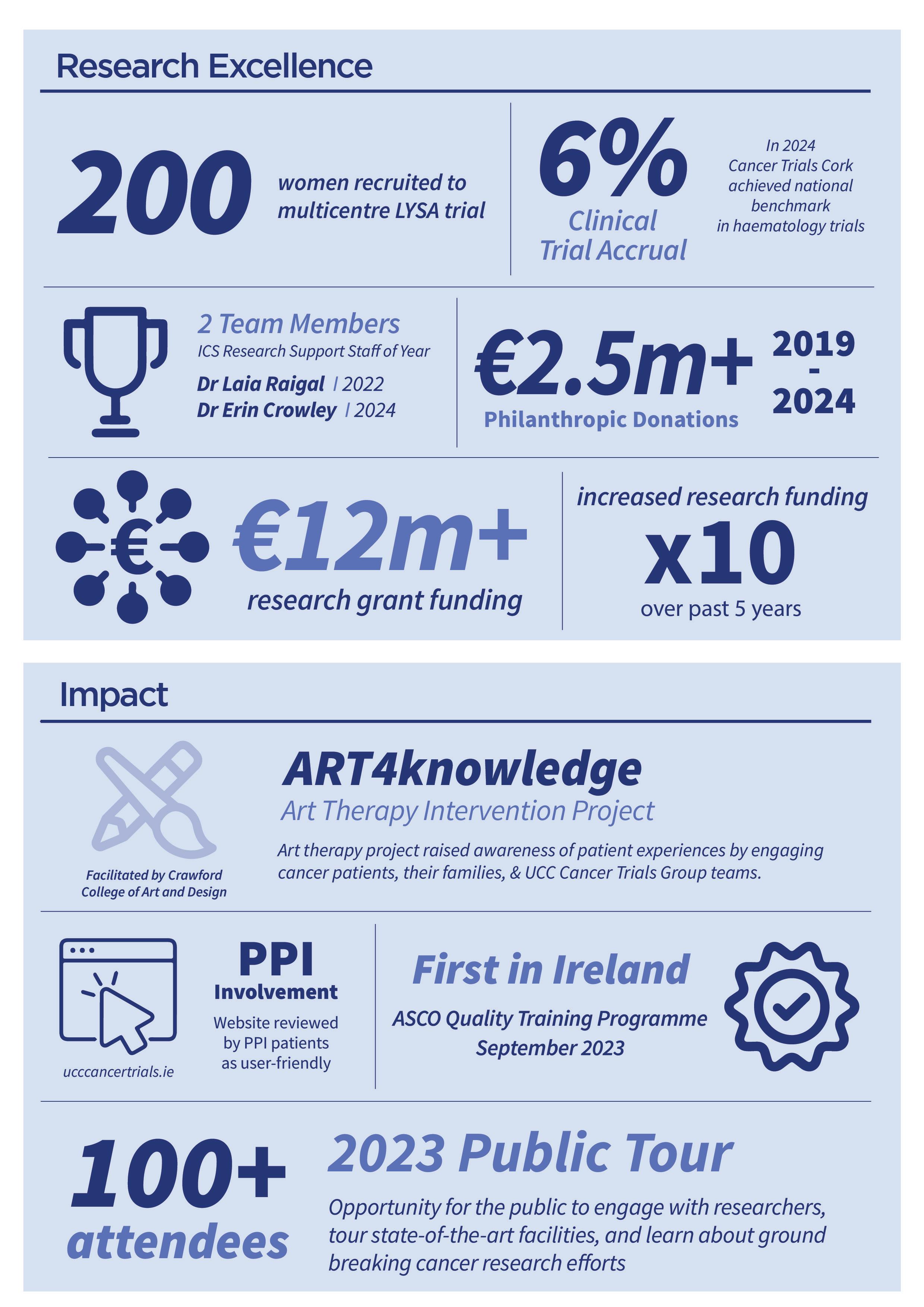
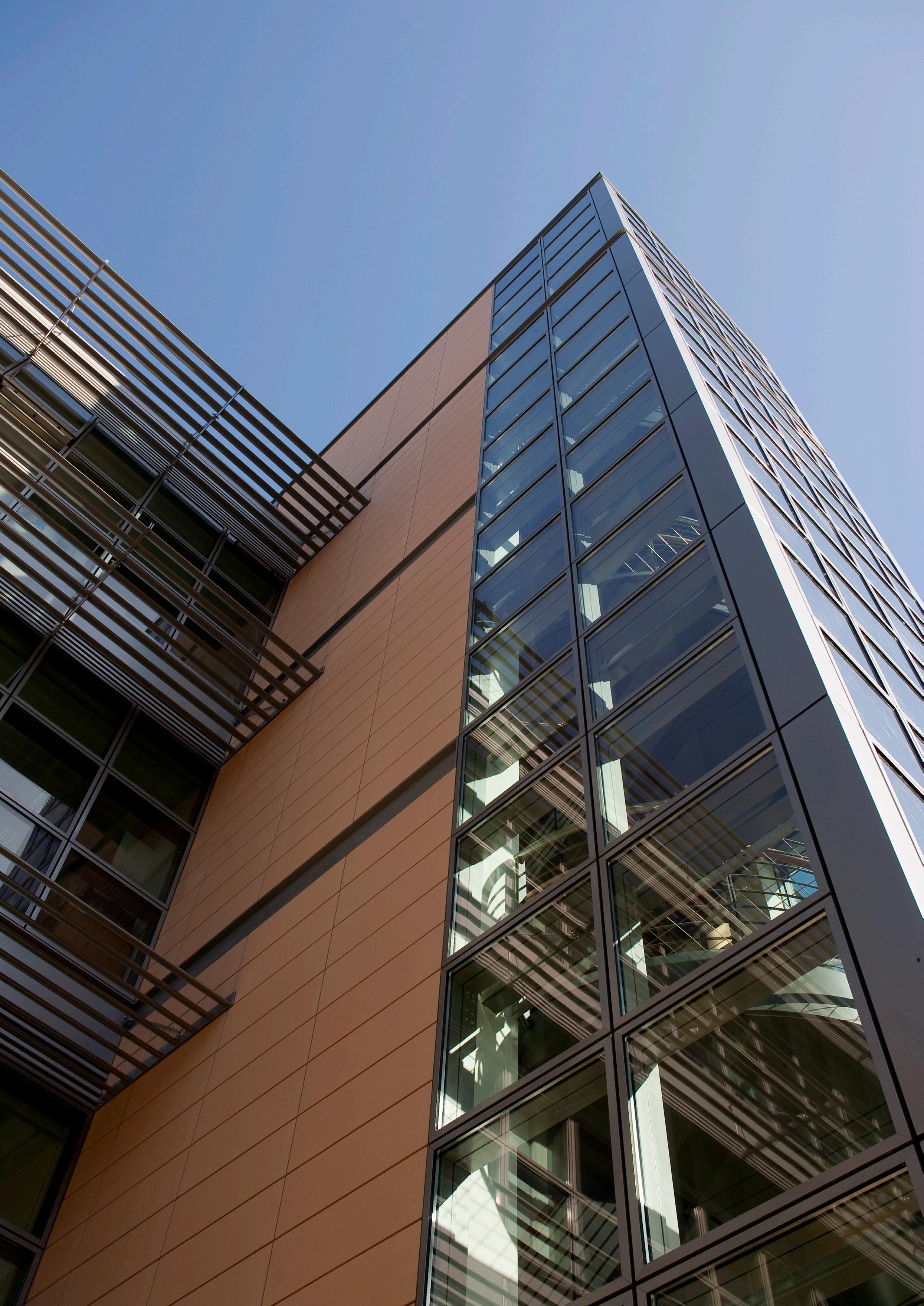

Cork University Foundation
Regulatory Charity Number: 20033385
Company Registration Number: 43605
Revenue Charity Number (CHY): 11831
Registered Address: c/o Alumni & Development
University College Cork, 2.12 Western Gateway Building, Western Road, Cork, T12 XF62.
E: foundation@ucc.ie
CEO: Kerry Bryson, kbryson@ucc.ie

Cancer Research @UCC
4th Floor, Western Gateway Building, Western Road, Cork
E: infocancerresearch@ucc.ie
W: www.ucc.ie/en/cancer-research/